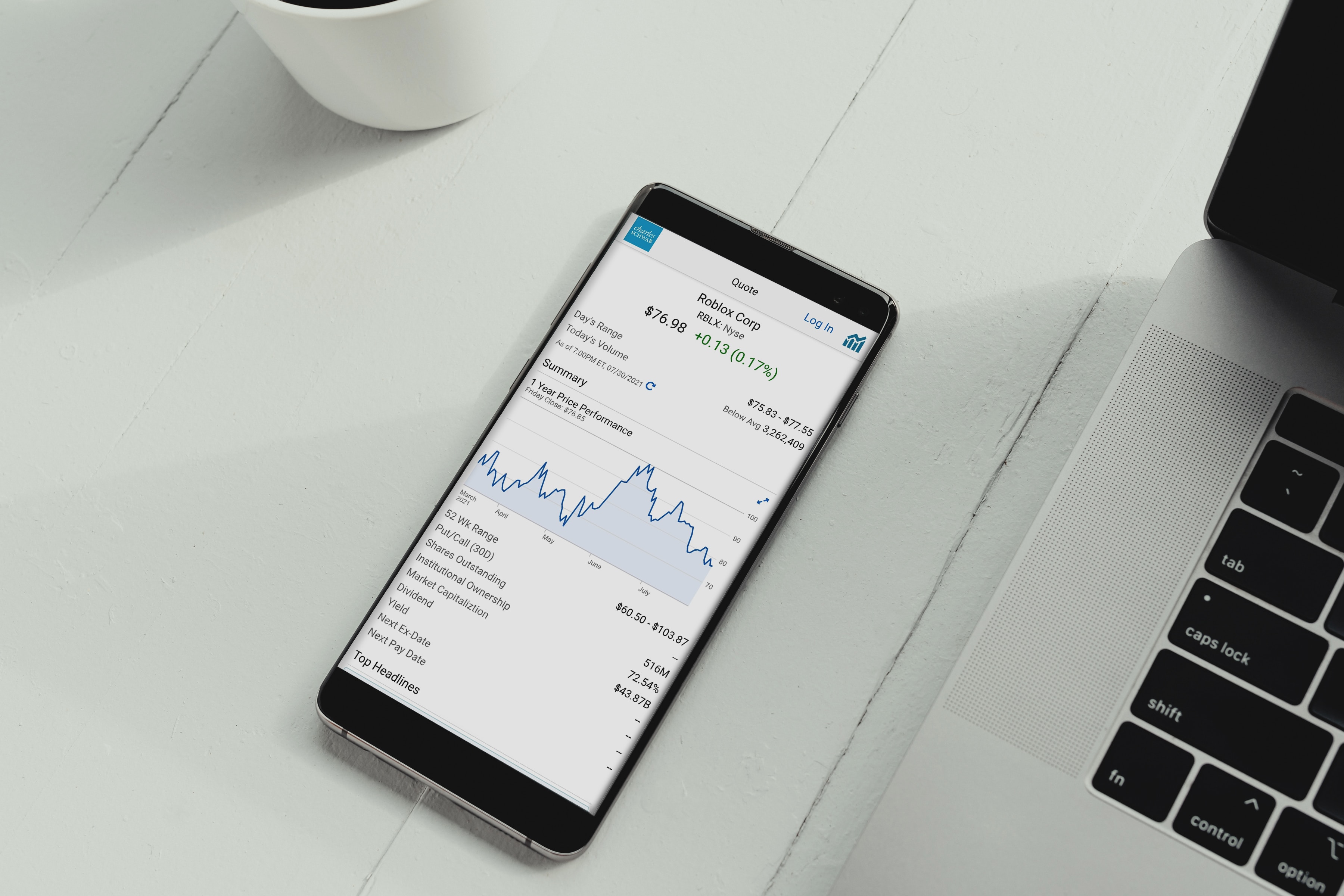How to Buy Treasuries?

The foundation of your investor education should be learning how to purchase bonds. A well-diversified portfolio should constantly achieve a balance between equities and bonds, assisting you in navigating market turbulence while still benefiting from growth along the road.
Just2Trade is ready to provide you with all the key information you need, including how and where to buy treasury bonds in 2022, what advantages you'll see when doing it, what challenges you can face, and what risks every investor should always consider. Let's get to the point!
Table of Contents
Treasury Bonds: What is the Product?
Who Issues Government Bonds?
What Does the Profitability of Government Bonds Depend On?
The Risk of Inflation
Can a Country Go Bankrupt?
Treasury Bonds vs. Bonds Guaranteed by the Treasury
Treasury Bonds: Interest Rates and Other Parameters
Redemption Periods for Government Bonds of Poland
Types of Government Bonds Offered by the Treasury
Key Features and Advantages of Treasury Savings Bonds
Where and How to Buy Treasury Bonds of Poland?
How to Buy Treasury Bonds on the Secondary Market?
Where to Buy Foreign Bonds?
How to Build a Bond Ladder?
How to Buy Bond Mutual Funds?
How to Buy Bond ETFs?
Conclusion
FAQ
Treasury Bonds: What Is the Product?
Treasury bonds, similar to corporate or municipal bonds, belong to the category of bonds. A bond is a financial instrument that represents a loan made by the bondholder to the issuer, who is responsible for repaying the loan along with interest at a specified future date.
Unlike physical documents, treasury bonds exist in electronic form and are recorded in the National Securities Depository. When purchasing a treasury bond, the buyer receives a confirmation of the transaction. In the event of losing this confirmation, the bond itself is not lost, as the purchase information is securely stored in the Bond Buyer Register. To obtain a replacement confirmation for this type of security, individuals can visit the nearest Bond Sales Point with their ID card.
Who Issues Government Bonds?
Treasury bonds are authorized for issuance by the designated minister responsible for the country's financial matters, such as the Minister of Finance in Poland. The distribution and sale of these bonds are facilitated by an appointed issue agent. Additionally, bonds can be offered through auctions to attract large investors, primarily including banks, investment funds, and insurance companies.
The funds generated from the sale of treasury bonds serve to cover a wide range of government expenses. These encompass various sectors of the economy, including education, culture, public administration, social welfare, and the judicial system. Moreover, the proceeds are utilized for infrastructure development, environmental conservation initiatives, and other essential projects. Given the propensity of politicians to make promises without always considering the financial implications, the state consistently requires funds. Consequently, the issuance of treasury bonds is an ongoing necessity.
What Does the Profitability of Government Bonds Depend On?
The yields of Treasury bonds, being debt securities issued by the Treasury, are influenced by a multitude of factors. Some factors directly pertain to the bonds themselves, which we will delve into shortly, while others are contingent upon the broader financial landscape, including interest rates, inflation levels, Gross Domestic Product (GDP) growth rates, and the borrowing requirements of the government.
Consequently, it is challenging to definitively identify which government bonds offer the highest profitability. Generally, their returns are closely tied to prevailing interest rates. However, it is conceivable that a scenario could arise where utilizing cyclical deposit products, such as savings accounts or fixed-term deposits, which adapt to market conditions, may yield greater profits than investing in long-term bonds.
Which Bonds to Choose – Ones with a Fixed or Variable Interest Rate?
The timing of purchasing bonds is a crucial factor that impacts their profitability. Rather than pinpointing a specific day or month, it revolves around the stage of the business cycle. During periods of economic slowdown or indications of lower interest rates, it is advisable to consider investing in fixed-rate bonds.
Conversely, when the economy is flourishing and there is a likelihood of increasing interest rates, it is prudent to explore bonds with variable interest rates.
This is because the bond buyer enjoys the conditions specified in the issuance agreement until the redemption date. For instance, if you purchase bonds with a fixed interest rate of 3% and interest rates subsequently decline, even if banks offer deposits at 2% or even 1%, you will continue to earn the agreed-upon 3% return.
On the other hand, if you were to acquire the same bonds during an economic boom, when the Monetary Policy Council raises interest rates and deposit rates surge, you would consistently earn the established 3% return.
The Risk of Inflation
Where to buy treasury bonds indexed for inflation? Let's have a closer look at this case.
Regrettably, life is far from simple. Not only is it challenging to forecast economic developments, but we must also grapple with varying interest rates on medium- and long-term bonds. Initially, the interest on savings can be accurately calculated based on the specified value in the issuance agreement. However, in subsequent years, the return becomes an unknown variable, partly dependent on the inflation rate.
Nonetheless, there may be a temptation to compute the level of return, resulting in a scenario where you neither gain nor lose value. It may seem unbelievable, but this possibility exists, bearing in mind the 19 percent capital gains tax, also known as the Belka tax.
The threshold for inflation, beyond which it "consumes" your profits, is determined by the following formula:
inflation = (81% : 19%) x margin
For instance, with a margin set at 1%, the inflation limit stands at 4.26%, while at 1.5%, it rises to 6.40%. Unfortunately, if the price increase exceeds these thresholds, your returns will be diminished.
It is important to note that these considerations are purely theoretical, as the Belka tax is only imposed upon bond redemption. Therefore, inflation would need to persist above the calculated level for an extended period for your money to truly lose value.
And that covers the issue of how to buy inflation-indexed treasury bonds. In summary, while inflation-indexed Treasury bonds carry a degree of uncertainty, it is unlikely that they will result in losses.
Can a Country Go Bankrupt?
Investing savings in government bonds carries the lowest risk classification, primarily due to the state's full liability for their redemption. In Poland, this assurance is explicitly stated in Article 95(6) of the Public Finance Act. Furthermore, Article 165, point 1 of the same law provides an additional safeguard by prioritizing the servicing of the Treasury's debt over other state budget expenditures. In essence, obligations arising from issued treasury securities are given top priority and should be fulfilled first.
However, it is important to consider the possibility of a political system change where a new government declares a clear break from the past, even in financial terms. Such a scenario could result in a loss of confidence in both the state and the financial market, leading to significant inflation and severe budgetary challenges for numerous households. We experienced a similar situation after World War II, when the communist authorities decided not to honor the bonds issued by the Second Republic, causing substantial repercussions.
)
Treasury Bonds vs. Bonds Guaranteed by the Treasury
Bonds issued by other entities may have the Treasury serving as the issuer or guarantee. Let's examine the effects of this.
Treasury Bonds
The term "treasury bonds" refers specifically to Polish debt securities and highlights the State Treasury as the issuer, represented by the Minister of Finance, who is accountable to the Ministry of Finance. By investing in treasury bonds, individuals lend money to the state, which commits to repaying the loan with interest based on the terms outlined in the specific series' issuance document.
Treasury bonds are released monthly at a predetermined price. They are primarily purchased by investment funds, banks, and other financial institutions, as they are considered the most secure form of capital investment. These bonds can be traded on the Catalyst market of the Stock Exchange.
A narrower category of bonds known as savings (retail) bonds is exclusively available to retail investors, including individuals (both residents and non-residents), associations, social and professional organizations, as well as foundations registered in a court. These debt instruments are also sold at a fixed price and offer the option of early redemption. However, they are not listed on the Warsaw Stock Exchange (WSE).
Bonds Guaranteed by the Treasury
When considering how to buy government bonds, it's important to note that not only does the Treasury issue such bonds, but it also acts as a guarantor for bonds issued by other entities like Bank Gospodarstwa Krajowego (BGK) or the Polish Development Fund (PFR). These institutions release bonds in the market with a similar objective of raising funds to support Poland's social and economic development. In essence, these actions are carried out on behalf of the state by specialized institutions, and therefore, the Treasury provides the guarantee for their redemption.
The bonds issued by BGK and PFR are listed on the Stock Exchange and feature a fixed interest rate. This interest is paid annually and deposited into the holder's brokerage account.
Treasury Bonds: Interest Rates and Other Parameters
Government bonds possess various characteristics beyond just the interest rate. Investors can find detailed information in the letter of issue for each bond series, which outlines the sale period, quantity of bonds offered, interest rate rules, and maturity date.
Here are key terms to be familiar with:
-
Issue price: The selling price on the first day of issuance. An exception is savings bonds offered at a fixed price of PLN 100.
- Nominal price: The value of the bond that will be repaid at redemption along with the accrued interest.
- Selling price: The price paid by the buyer of the bonds on the day of purchase.
- Conversion price: The price of new bonds for purchasers who exchange old bonds for redemption.
- Discount: The difference between the face value and the issue price, which can be lower than the face value for specific groups, such as those redeeming bonds.
- Letter of issue: A document in which the issuer specifies the bond's interest rate, redemption rules, and date.
- Coupon bonds: Holders receive periodic interest payments (e.g., every six months) and the principal is repaid at redemption.
- Zero-coupon bonds: Debt securities offered at a discount to the nominal price, with the difference representing the investor's profit.
- Profitability: The rate of return on investment in bonds, influenced by factors such as purchase price, interest rate, interest payment frequency, and method of capitalization.
- Maturity: The date when bond owners receive the borrowed money along with the accrued interest.
Redemption Periods for Government Bonds of Poland
Treasury bonds offer investment options for various timeframes, catering to different needs.
Short-Term Polish Government Bonds
Ideal for short-term savings of a few months to a year. These treasury bills provide a fixed interest rate, ensuring predictable returns.
Medium-Term Treasury Bonds
Suitable for investors with a time horizon of one to five years. They offer flexibility in interest structures, either with fixed rates and annual compounding for increased profits or variable rates adjusted periodically based on market factors.
Long-Term Government Bonds
Geared towards long-term investors, interest rates for these bonds are known only in the first year and are subsequently linked to inflation. Interest is accrued annually, contributing to a growing investment amount over time.
Perpetual Bonds
These bonds, including rare 100-year options, offer continuous interest payments without redemption. Holders receive a perpetual annuity, providing a steady cash flow.
Types of Government Bonds Offered by the Treasury
To categorize and identify bonds, a symbol system has been established. Each bond is assigned a symbol such as OTS0621 or COI0325, representing its type and redemption month and year.
Polish treasury bonds are constantly available for purchase with new issues released every month. They are offered at a fixed price of PLN 100 per bond.
Three-Month Fixed-Rate Savings Treasury Bonds OTS0823
-
Selling price: PLN 100.00
- Fixed interest rate: 3.00% per annum
- Claim value after 3 months: PLN 100.76 before taxes
- Conversion option available at PLN 100.00
One-Year Savings Treasury Bonds with Variable Interest Rates ROR0524
-
Selling price: PLN 100.00
- Fixed interest rate for first period: 6.75% per annum
- Monthly interest payment
- Conversion option available at PLN 99.80
Two-Year Savings Treasury Bonds with Floating Interest Rates DOR0525
-
Selling price: PLN 100.00
- Fixed interest rate for first period: 6.85% per annum
- Monthly interest payment with a 0.10% margin
- Conversion option available at PLN 99.70
Three-Year Savings Treasury Bonds with a Fixed Interest Rate TOS0526
-
Selling price: PLN 100.00
- Fixed interest rate: 6.85% per year
- Interest after three years: PLN 21.99 before taxes
- Conversion option available at PLN 99.60
Four-Year Savings Government Bonds COI0527
-
Selling price: PLN 100.00
- Interest rate for first period: 7.00% per annum
- Subsequent interest rates based on consumer price increase + 1.00% margin
- Interest paid annually
- Conversion option available at PLN 99.50
Retirement Ten-Year Savings Government Bonds EDO0533
-
Selling price: PLN 100.00
- Interest rate for first period: 7.25% per annum
- Subsequent interest rates based on consumer price increase + 1.25% margin
- Interest paid upon completion of savings
- Conversion option available at PLN 99.40
Family Savings Bonds Dedicated to Beneficiaries of the "Family 500 Plus" Program
-
Family six-year savings bonds (ROS)
- Family twelve-year savings bonds (ROD)
- Bonds with preferential interest rates for program beneficiaries
Family Six-Year Savings Treasury Bonds ROS0529
-
Selling price: PLN 100.00
- Initial interest rate: 7.20% per annum for the first year
- Subsequent interest rate based on consumer price index + 1.50% margin
- Interest paid upon completion of savings
Family Twelve-Year Savings Treasury Bonds ROD0535
-
Selling price: PLN 100.00
- Initial interest rate: 7.5
% per annum for the first year
- Subsequent interest rate based on consumer price index + 1.75% margin
- Interest paid upon completion of savings
Key Features and Advantages of Treasury Savings Bonds
Treasury savings bonds have a number of distinctive qualities and benefits that make them a desirable investment choice. The following are some standout traits:
-
Variety of Bond Types: Treasury savings bonds are available in a variety of bond types and maturity lengths, from short-term (3-month) to long-term (10-year) alternatives. As a result, investors are able to select bonds that fit with their investing objectives and time horizons.
- Fixed and Variable Interest Rates: Treasury savings bonds are available with both fixed and variable interest rates, depending on the bond type. Bonds with fixed rates offer consistency and a steady income stream, whilst those with variable rates have the potential for larger returns depending on the state of the market.
- Protection from Inflation: Some Treasury savings bonds are linked to inflation, guaranteeing that the interest collected stays up with growing costs. These inflation-indexed bonds help protect your investment's buying power by serving as a buffer against inflation.
- Regular Interest Payments: Bondholders of certain Treasury savings bonds get monthly interest payments. These payments, whether monthly, yearly, or at maturity, give investors a consistent source of income.
- Conversion Options: Treasury savings bonds may provide the flexibility of conversion. Investors have the option to acquire certain bonds from a fresh issue using cash from redeemed bonds or a fraction of them, which may allow for portfolio modifications and diversification.
- Low Risk and Guaranteed Redemption: Treasury savings bonds are regarded as low-risk investments because they are backed by the full confidence and credit of the government. They are also guaranteed to be redeemed. Investors are given the certainty that their main investment will be refunded since the government guarantees the bond's redemption.
- Accessible Sales Channels: A variety of channels, including bank branches, brokerage firms, internet marketplaces, and telephone services, make it simple to buy Treasury savings bonds. Investor participation in bond offers is made simple by this accessibility.
- Suitable for Retail Investors: Treasury savings bonds are offered to retail investors, which includes individuals, associations, social and professional groups, as well as registered foundations. A wide spectrum of investors may take part in and profit from these bonds because of their accessibility.

Where and How to Buy Treasury Bonds of Poland
Treasury bonds: where to buy? You have various convenient options:
Online Platforms:
Phone Services:
-
Contact PKO Bank Polski at 0 801 310 210 or (81) 535 66 55 for assistance with purchasing treasury bonds.
- For Bank Polska Kasa Opieki S.A. (PKO BP), dial (22) 591 22 00 to explore bond buying options.
Bond Sales Points:
-
Visit the Bond Sales Points located within PKO Bank Polski or PKO BP Brokerage Office for in-person bond purchases.
Bond Sales Outlets:
-
Explore the Bond Sales Outlets available in Bank Pekao S.A. branches or Biuro Maklerskie Pekao S.A. for the opportunity to buy treasury bonds.
You can access the search engines of the respective Bond Sales Points through the links provided below to find the nearest location for your convenience.
How to Buy Treasury Bonds on the Secondary Market
Government bonds can be purchased on the main market, as previously mentioned, or on the secondary market.
Acquiring Bonds on the Secondary Market
Acquiring bonds on the secondary market involves the following process:
-
Purchase and Sale Agreement: To initiate the transaction, both the buyer and the current bond owner must establish a purchase and sale agreement. This agreement can be drawn up in a regular contractual form.
- Visit the Bond Sales Outlet (PSO): Once the agreement is signed, both parties need to visit the Bond Sales Outlet. At the PSO, they can request the necessary adjustments to be made in the Bond Buyers' Register.
- Confirmation of Bond Purchase: After the required changes have been implemented, an employee at the Bond Sales Outlet will issue a confirmation of the bond purchase to the new owner.
If the purchase contract is prepared in the form of a notarial deed or at least notarized, the bond buyer can handle the process independently by visiting the facility.
It's important to note that no stamp duty is applicable when entering into this type of agreement.
Please be aware that changes can only be made at outlets operating under the PKO BP banner. At Pekao SA outlets, the option to make such changes will be available once the bond service at stationary outlets is launched, expected in the first quarter of 2023.
Acquiring Bonds for a Minor
Acquiring bonds for a minor involves the following considerations:
-
Purchasing and Redemption: The legal representative of the minor, such as a parent or a legal guardian appointed by the family court, can buy bonds from their own assets without any restrictions for the benefit of the child under their care. The same applies to the redemption of the bonds and the receipt of interest payments.
- Restrictions and Court Approval: However, certain restrictions apply if the bonds were to be purchased from the child's estate, presented for early redemption, or sold to someone before maturity. These actions go beyond the scope of ordinary management and require approval from the family court for their implementation.
- Teenagers' Rights: It's worth noting that teenagers who are at least 13 years old have the right to purchase bonds with the consent of a parent or legal guardian. This consent can be provided in the form of a separate document or as part of a filed order. To establish the minor's identity, any valid document such as an identity card, passport, or school ID card will suffice.
Please be sure to consult with legal professionals or financial advisors for specific guidance regarding purchasing bonds for minors, as legal requirements may vary.
Early Redemption of Government Bonds
Early redemption of government bonds can be requested under certain conditions. Here are some key points to consider:
-
Timing: Early redemption instructions can be made no earlier than 7 days after acquiring the bond. The deadline for requesting early redemption varies depending on the type of bond, typically ranging from a few days to a month before the maturity date.
- Cost and Interest: For 3-month bonds (OTS), redeeming early does not incur any cost, but you will not receive interest for the period you held the bond. Other types of bonds may have a redemption fee of PLN 0.70 per bond. However, for certain bond types, the fee is only charged if the accrued interest exceeds the redemption fee.
- Fee Variation: The fee structure differs for different bond durations. For 2-year (DOS) and 4-year (COI) bonds, the fee applies only in the first interest period. In subsequent periods, the full fee is charged, which may result in receiving a lower amount than the original bond purchase price.
- Higher Fee for Longer-Term Bonds: 10-year (EDO) and 12-year (ROD) bonds have a higher fee of PLN 2 per bond. The fee is applied according to the same rules as for 3-year and 6-year bonds.
- Processing Time and Interest Accrual: The withdrawal of funds occurs after 5 business days from the date of the redemption instruction. During this time, interest continues to accrue, except for 3-month (OTS) bonds.
Where to Buy Foreign Bonds
Bonds can be owned in a variety of ways, with many techniques available to suit the requirements of all types of investors. While some investors prefer to purchase individual bonds, others pick bond ETFs.
Individual Bonds
One can buy specific bonds either in primary markets, where one buys the bond directly from the issuer, or secondary markets, where one buys the bond directly from the prior holder.
A precise yield can be locked in for a predetermined amount of time by owning individual bonds. The rates supplied by bond funds might change over time, therefore this strategy gives consistency.
The majority of bonds are issued in $1,000 increments and must be acquired in full every bond. It follows that in order to get started, you must deposit at least that much into your brokerage account.
There are particular difficulties in buying individual bonds. The main market can be challenging to access for all but the richest investors, in addition to the numerous moving pieces that are inherent in each bond.
U.S. Treasury Bonds
USA treasury bonds: how to buy them? Let's have a closer look at the question.
TreasuryDirect is a government website where investors may purchase Treasury bonds directly. A fixed interest rate is paid on Treasury bonds every six months for maturities of 20 or 30 years.
Bryan M. Kuderna, a certified financial planner (CFP) and author of "What Should I Do With My Money?", states that Treasury securities, such as notes, bills, bonds, TIPS, or FRNs, are accessible through TreasuryDirect for noncompetitive bidding for smaller retail investors without having to pay commissions or fees.
TreasuryDirect offers bonds at prices and conditions that have previously been determined through competitive auctions between major institutional purchasers.
Bond Funds
Bond mutual funds or exchange-traded funds (ETFs) are the simplest ways to purchase bonds. Hundreds or perhaps thousands of bonds make up the sizable, diversified fixed-income portfolios that funds own.
Instead of investing in a single asset, Jason Werner, a financial advisor and the CEO of Werner Financial, explains that doing so exposes an investor to a wide range of fixed income instruments.
Bond funds employ a very broad range of various investment techniques, and fund managers handle the portfolio's purchasing and selling of assets in return for yearly fees.
With a somewhat modest investment, "a bond fund can provide much greater diversification in maturity dates, credit quality, and coupon rates," claims Kuderna. Additionally, as funds spend considerably greater quantities of money, there is typically more efficient pricing available.
Online Brokerage Accounts
In exchange for fees and charges, online brokerage accounts make it simple to purchase individual bonds or bond ETFs.
Put the ticker of the fund you're interested in together with the quantity you wish to acquire into your brokerage account to buy shares of bond funds.
It's more challenging to buy individual bonds using your brokerage account. Access to secondary bond markets is often provided through internet brokers, thus both availability and prices are entirely dependent on the desire of current holders to sell.
How to Build a Bond Ladder
By distributing the maturity dates of bonds, bond laddering is a technique for managing interest rate risk. You buy bonds with different maturities rather than putting all of your money into one bond. You reinvest in bonds with longer maturities when each bond matures. Through staggered coupon payments, this strategy offers flexibility, greater return chances, and increased cash flow. Bond laddering aids fixed-income investors in navigating shifting market circumstances and maximizes profits.
How to Buy Bond Mutual Funds
Bond mutual funds have sizable, well-balanced holdings in fixed-income securities. Although they impose management costs, they simplify bond investing.
A financial counselor, an internet broker, or an investing firm can help you buy a bond fund.
There are countless bond mutual funds with various levels of risk, according to Kuderna. This implies that before investing in bond mutual funds, it's crucial to assess your total risk tolerance and to do your homework.
How to Buy Bond ETFs
Exchange-traded funds (ETFs) that invest in fixed income assets are called bond ETFs. They can be handled actively or passively, and the costs are often lower than those charged by bond mutual funds.
When compared to mutual funds, Powers notes that ETFs often have relatively low costs and allow investors to keep a larger portion of the profits.
Any of the above-mentioned typical investment accounts, such as an investing firm, an internet broker, or a financial adviser, can be used to buy bond ETFs. Before choosing a course of action, make sure to do your homework on the best bond ETF possibilities.
Conclusion
Bond purchases – whether they be individual bonds, mutual funds, or exchange-traded funds – provide your investing portfolio with diversity and dependable income, but bear in mind that not all bonds are made equal.
High-yield or junk bonds are the riskiest, but Treasuries are the safest since they are guaranteed by the full confidence and credit of the United States government, according to Kuderna.
You must exercise due diligence before making any bond-related investments. Consider researching potential issuers, comparing bond ratings, and, if at all feasible, talking to an investing expert to get their advice.
FAQ
Still have any questions regarding the main question: "How to buy treasury bonds via Internet?" If so, let's take a closer look at the FAQ list below – there, you'll be able to find the answers to all your remaining questions.
Are there any benefits to a bond swap?
Yes, there are benefits to a bond swap. Some bonds offer a bonus in the form of a reduction in the price of the new bonds by PLN 0.10 when you extend your savings. The interest and the price difference will be credited to your designated bank account or remain in your registered account. You can use this money to buy more bonds if you wish. Additionally, a bond swap allows for continuity of savings, as the redemption of old bonds and purchase of new ones occurs on the same day. There are no fees or commissions associated with the swap.
Is there a tax on government bonds?
Yes, there is a flat capital gains tax of 19 percent on the profit earned from government bonds, including the discount bonus. This tax is withheld when interest is paid, so the amount you receive in your account is already after the deduction of the tax.
What happens to treasury bonds after the owner's death?
Treasury bonds owned by a deceased individual become part of the estate and are subject to inheritance according to the rules of inheritance law. It is not possible to establish a disposition on death for treasury bonds. The court proceedings for the determination of inheritance can take several years, so it is advisable to consider preparing a will during your lifetime.


)


)
